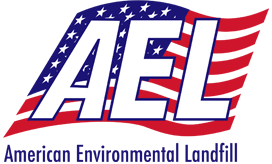The pure giddiness we feel at the new iphone 6 launch should tell us little something about our obsession for anything cutting edge or electronic. As folks who love us some hi-tech, we’ve never skimped on our addictions, and judging by industry sales recently, we’re sure not stopping anytime soon.
The downside to it all is the glut of massed produced e-products we own that quickly become obsolete and then are tossed away into the trash. Fact is, much of these e-products (defined as anything with a battery or cord) contain hazardous material that can do a great deal of harm to our environment if not dealt with properly at a licensed landfill.
The amount of electronic waste generated globally last year (roughly 50 million tons) is enough to fill 100 Empire State Buildings and represents more than 15 pounds for every living person, according to the U.N. Environmental Program.
It’s tough to imagine a scenario where that figure lets up, especially given the purchasing power of multiple millions of consumers entering the marketplace each year. We’re all impacted in the surge as we quickly grow into a technology reliant society, begging a more integrated solution to the problem—and not just one that dumps the burden on area landfill facilities.
Here at AEL, we know how critical it is to have a well-designed facility to help reduce the effects of dangerous chemical substances. Over the years, we’ve poured millions into the latest technology in liners, a leachate collection system, and an interceptor line around our landfill to help protect Tulsa’s air, soil and water quality. Our passion is to make sure the disposal of all types of waste including e-waste is absolutely safe for our city and the toxicity significantly reduced.
But, the fact is, much of the e-waste problem can and should be effectively tackled even before e-products are trucked in and dumped. If we’re not looking at a synthesis of all sources that includes our consumer behavior as well as the message we send to tech companies themselves, then how can we say we’re serious about solving the issue?
Moving beyond the disposal side of the equation means we really begin utilizing our consumer purchasing power. That includes considering the specifics of e-products before we buy–where the product is manufactured, the energy usage as well as its recyclability—so that companies and manufacturers get a clear understanding of what’s important to us. Big tech companies may not listen to a single voice amid the roar, but they do listen to numbers, and many are beginning to get the wake up call, using greener production techniques as a result.
It’s also becoming a PR boon for firms to show how they’re enhancing energy usage and putting a focus on recyclability and reuse of end of life electronics.
Companies such as Apple, Dell, Microsoft, Samsung, Best Buy and others have even implemented take back programs to help extend the life of certain e-products and lessen the impact before they’re completely disposed of.
And, they’re doing so, without government regulation or state and federal mandates. The several states that have adopted e-waste rules are also seeing companies shipping e-products to third world countries for reclamation–leading to the exposure of untrained and underage workers to dangerous heavy metals. Self-initiated programs within the private sector are clearly proving to be safer and more cost effective than blind directives that only kick the can into someone else’s yard.
The free market is working for our environment, so I think we should let it. However, we still have to remain diligent if we’re to overcome the growing and damaging effects that e-waste can have. The huge torrent of e-products on the market will only grow stronger and more sustained as we move forward with evolving technologies and demand.
We have to work together to stem that tide, and it takes all of us to do so. So, please don’t just junk your electronic device or piece of equipment before you assess the impact. Really ask yourself if it can be repurposed in any way or recycled before you trash it.
Never before have we had the ear of so many companies wanting to maintain an eco-friendly image in the public eye. Do something good for the Tulsa community and let these companies know you care about the e-waste issue—before it gets buried with yesterday’s trash.

